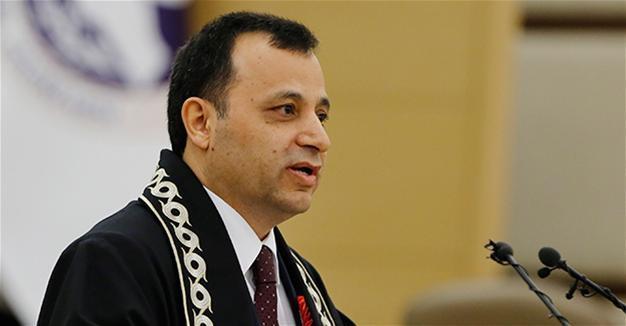Backlog at high court runs to over 100,000 cases, mainly on state of emergency: Top judge
ANKARA

AA photo
Over 100,000 individual applications have been made to the Constitutional Court, with a three quarters of them coming after the July 15 coup attempt, court head Zühtü Arslan has said, noting that the number exceeds the workload of the European Court of Human Rights (ECHR), which receives applications from 47 countries.“Right now, 101,000 applications have been received by our court. That number is way beyond the total number ECHR has received from 47 different countries. That number is estimated to be around 87,000,” Arslan said at an anniversary event for the foundation of the Constitutional Court on April 25.
Stating that the court had taken extra measures to meet the exhausting workload, Arslan said the court had raised its capacity to receive applications “10 times more than previous periods.”
Arslan said the court had registered and classified the applications, as well as commencing a process to settle the cases, which have been classified based on their subjects.
“In this context, the leading files, on which principle decisions will be given on different conditions, have been determined and notified to the Justice Ministry in order to receive a legal opinion,” Arslan said, adding that legal works to determine the legal framework of the individual applications was nearing completion.
“Seventy-five percent of the applications in this period consist of the cases related to the state of emergency rule,” he said, stating that there were two groups of applications within the scope of the state of emergency.
“The first group consists of the ones which are direct procedures of state of emergency decrees, and the majority of the applications are from this group,” he said.
“That’s why the establishment of the investigation commission of the state of emergency rules is a very important development to pave the way for individual applications about the direct procedures related to the state of emergency rules,” he said.
The government issued a decree law to establish a “State of Emergency Procedures Investigation Commission” in January in order to evaluate and make decisions about applications related to operations made within the scope of the decree laws, especially to ease criticisms from European institutions regarding the extension of detention periods to 30 days.
Since the conditions of detention and arrest were amended by the state of emergency decrees, Arslan said the court was working on a technical study of the procedures of investigation and method about detention and arrest.
“The rapporteur-level technical work of one of the leading papers to determine the procedure and method of arrest and the arrest warrants is close to ending, and soon our court will decide on a principle on this issue,” Arslan said, adding that after the preliminary files have been settled, they would aim “to settle the applications on the arrest measures within a reasonable amount of time.”
The top court began accepting individual applications in 2012 amid a high number of applications made to the ECHR for violations of basic rights and freedoms by public institutions. The Constitutional Court, however, has previously ruled that the governmental decrees in the state of emergency rule were not within their jurisdiction.
The decision has been interpreted as an attempt to block individual applications to the ECHR since the court only accepts applications if all domestic legal avenues have been fully exhausted, yet the top Turkish court’s refusal to hear such cases means the legal processes within Turkey remain in limbo.
















